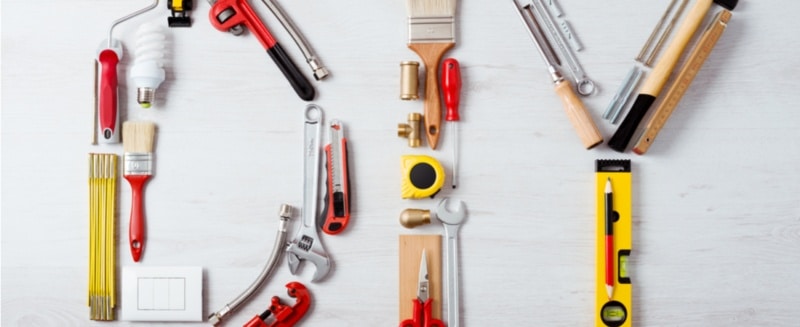Most of us face this tough question from time to time: Should I buy it or make it? Are these bagels worth the $10 for a dozen, or could I just as easily make them from scratch? Is this outdoor table a good deal, or should I learn a little woodworking and make my own version? Gardens also fall into the make vs. buy argument: Should I raise my own veggies or pick them up at the market? And what about raising chickens? Is it worth investing in a flock and gathering my own daily eggs, or am I better off picking up a dozen in a grocer’s cardboard carton?
Whenever you face the “make or buy” debate, it’s worth asking yourself a few questions:
Does the make option require a lot of ingredients or tools I don’t have? If you’re thinking of sewing your own curtains but don’t own a sewing machine (or can’t borrow one), for instance, this might be a better buy project.
Will the project be time-consuming? If so, will I enjoy the work? If you think of the project as a hobby, it may be well worth doing. But if it’s tedious, there is a time cost to making even something very inexpensive. Factor that in.
Will I get personal satisfaction from making it myself? My husband’s artwork hangs throughout our house. It would have cost us a bit less in supplies—and the value of his time—to simply buy art prints. But we both love having paintings he created himself. And the process of painting is fun for him.
Will I make it again? If you’ll make something more than once (say, yogurt or homemade bread), it’s often worth the learning curve and any special equipment you might buy.
Will the finished product be better/healthier/sturdier? This is often the question we ask about from-scratch food. Even if the cost of buying it at the store is about the same, is there value in making something without ingredients like high-fructose corn syrup?
Which version is cheaper? From a purely economic standpoint, this is a key question. Can you make it cheaper on your own, or does mass production of the item make the store version a better deal?
Since the majority of our family’s make vs. buy decisions center around food—and comparing relative costs—I was thrilled to find the book Make the Bread, Buy the Butter: What You Should (And Shouldn’t) Cook from Scratch to Save Time and Money. Author Jennifer Reese experiments with a number of food basics and recommends which to tackle on your own—and which to leave to the pros.
Some of her recommendations of things you should make:
- Peanut butter. Your own—made with shelled, skinned, unsalted peanuts and some peanut oil in your food processor—tastes much better and costs about 20 percent less than major brands.
- Bread. You don’t even need an automatic bread maker. A good loaf (search online for one of the popular no-knead recipes) costs less than $1 at home compared to $4 or more for an artisan bread loaf.
- Other good makes. Yogurt, mayonnaise, granola, and simple cheeses like ricotta and mascarpone.
A few things worth buying:
- Butter. Reese says the store version is cheaper than homemade by about half, and it tastes just as good.
- Rotisserie chicken. Your grocer’s bird costs almost the same as homemade.
- Pasta. Homemade is tasty, but it’s too time-consuming.
What about your family? Are there any items you’ve discovered you can make more cheaply—or better—yourselves? And is there anything you’ve found that is worth buying, even at a higher price?
Teri Cettina is a mom of two daughters and freelance writer who specializes in personal finance and parenting topics. She blogs at Your Family Money. Follow her on Twitter: @TeriCettina.
[amazon_link asins=’162414201X,B06XWV5X9N,B075K5YLXH’ template=’ProductCarousel’ store=’thinkglink-20′ marketplace=’US’ link_id=’6c3453fa-3839-11e8-904d-bb04c913e92a’]






